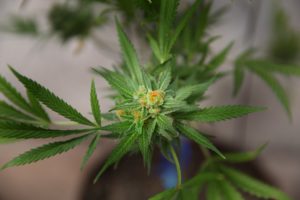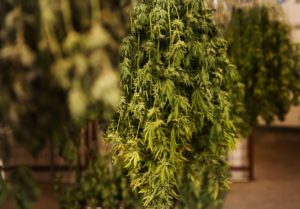
When Illinois’ new law legalizing recreational marijuana takes effect January 1, 2020, growers will face some of the strongest energy efficiency requirements in the country. Applicants for cannabis cultivation licenses will have to submit plans detailing how they will use energy efficient technology and conserve water.
The application process for cannabis cultivation licenses has proven to be very competitive in most legal states. For example, in Missouri there were 554 applications for only 60 cultivation licenses. It doesn’t help that the Illinois law is only allowing the 17 current medical marijuana cultivators to open full-size cultivation centers. That leaves only 40 new licenses available for smaller “craft growers” on July 1, 2020, and 60 more available by Dec. 21, 2021. These will be limited to 5,000 square feet.

Smaller operations will be competing against multi-state operators who have successfully applied for licenses before. These license applications require a lot of detail– business plans, staff and their expertise, how records will be kept, how employees will be trained, an environmental impact plan, a security plan, and, of course, a strict sustainable cultivation plan.
Growing cannabis sustainably is no small feat. A typical 5,000-square-foot indoor cannabis cultivation facility uses 66 times more energy than the average U.S. household. Additionally, cannabis requires more than 4 times the water required by wheat and 11 times more than required by corn. An improperly designed facility can waste vast amounts of water.
Unfortunately, cannabis cultivation in Illinois will only be allowed indoors or in greenhouses. According to the Illinois Environmental Council (IEC), this energy use could lead to enough electricity demand that the state uses the equivalent of an entire power plant for cannabis growing.
To avoid this, Illinois law is mandating efficiency standards and capping the amount of power used per square foot. The biggest cannabis-related electricity concerns are for lighting systems and heating, ventilating, and air conditioning systems.
Requirements will include best-in-class energy efficient lighting systems, minimized water runoff controlled by high-tech drip watering appliances, climate control systems, and wastewater filtering prior to discharge.
Applicants seeking a cultivation permit in Illinois should consult with experts who have been growing sustainably for years. AJ’s Craft Cannabis in Pueblo, Colorado offers sustainable cultivation consultation.
AJ’s cultivation experts apply organic cultivation science to its permaculture practices. The farm has built a state-of-the-art underground “GeoLab” that uses modern indoor cultivation systems with natural outdoor sunlight. Concrete walls keep the environment climate-controlled and secure, with a retractable transparent greenhouse roof to bring the sunlight indoors. Miles of pipes and tubes from their eco-friendly geothermal systems create an optimal air flow, temperature, and humidity level for each stage of the cultivation process. As unique as it may seem, the GeoLab building design works everywhere because it harnesses the constant temperature in the deep ground.
 AJ’s cultivators grow in raised “living soil” beds, allowing the plants to get even more rich in flavor, potency and effectiveness. They use a complex but rewarding process called integrated pest management (IPM) for the vegetative and flowering stages to avoid chemical pesticides.
AJ’s cultivators grow in raised “living soil” beds, allowing the plants to get even more rich in flavor, potency and effectiveness. They use a complex but rewarding process called integrated pest management (IPM) for the vegetative and flowering stages to avoid chemical pesticides.
For conservation, they use no till living soil to nearly eliminate all waste regarding water and plant material. All the organic waste can be composted and reused as nutrients and top dress for the plants as a nutrient supplement.
AJ’s also recycles or repurposes resources to reduce any negative environmental impact. For example, water runoff goes on to nourish the rest of the plant life on the farm.
AJ’s understands every farm is different and what works in Colorado may not work in Illinois. With experience growing in multiple states, AJ’s cultivation experts have the experience to help Illinois applicants craft sustainable cultivation plans that cater to local environmental and regulatory demands. Contact AJ’s to get a free 30 minute consultation. Our cultivators will listen to your goals and describe the ways they can help you adopt sustainable cultivation.
